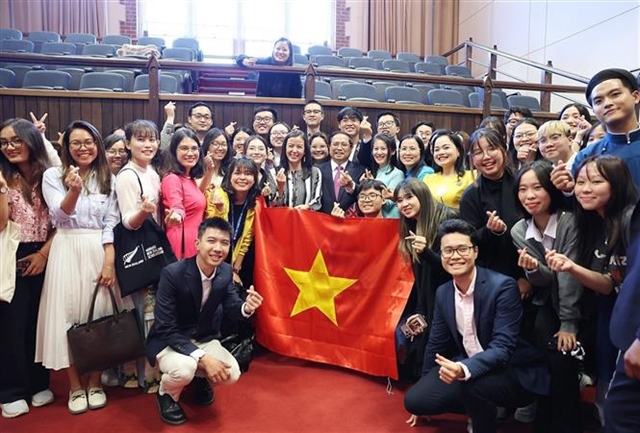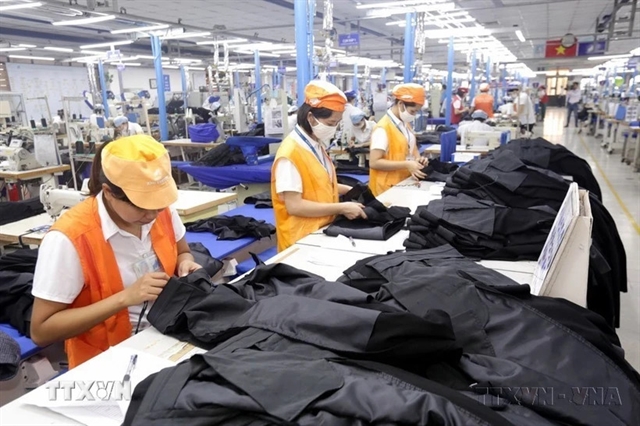 Politics & Law
Politics & Law

 |
| Garment production at Garment 10 Corporation in Sài Đồng, Long Biên District, Hà Nội. — VNA/VNS Photo Anh Tuấn |
HÀ NỘI — The Prime Minister Phạm Minh Chính has signed a directive on the building of the socio-economic development plans and state budget estimates for 2025.
The directive notes that all plans for the next year are being drafted amid a rapid and unpredictable global changes, particularly in terms of the Ukraine-Russia conflict, Gaza, the Red Sea. Other influences on any directive include rising protectionism, inflation and major economies' policy adjustments, supply chains and capital flow shifts.
Next year is a particularly important year domestically, when an all-level party congresses will be held on the threshold of the 14th National Party Congress.
Việt Nam’s stature and strength after nearly 40 years of 'đổi mới' (renewal) has become stronger. The political, social and macro-economic situation remains stable, many key national projects have been implemented and the business and investment climate has improved.
However, difficulties and challenges are still considerable, especially when it comes to fulfilling the targets of the five-year socio-economic development plan for 2021-25.
In that context, PM Chính requested that ministries, central agencies and localities identify the essential issues of the 2025 development plans.
They need to ensure the targets and solutions set for next year adhere to the overall plans, with three strategic breakthroughs, six focal tasks and 12 groups of main tasks and solutions detailed in the resolution of the 13th National Party Congress.
The plans need to effectively mobilise and use resources while promoting agencies and units’ self-reliance. They also have to closely connect the socio-economic development plans with the public investment ones.
Tasks and solutions must be detailed in terms of content, deadlines and progress, he added.
The building of the state budget plan for 2025, including budget spending and forecasts, has to be workable, so that there are as few revisions to those estimates as possible and that capital does not need to be transferred to the following year.
The drafting of local budget collection and spending plans for 2025 also has to comply with national and local socio-economic development targets and tasks, the five-year national and local financial plans and the medium-term public investment plan for 2021-25, according to the directive.
Main tasks include proactive and effective coordination of macroeconomic policies, including monetary, fiscal, investment and trade, to maintain economic stability, control inflation, promote growth and support business production.
Improving the socialist-oriented market economy; developing various markets; enhancing the investment and business environment, and promoting public-private investment partnerships, accelerating strategic infrastructure development, especially in transportation, major urban areas, seaports and airports, was another major task.
Focus should also be on restructuring the economy along modern growth lines, increasing productivity, quality, efficiency and competitiveness, from a quality work force to meet the demands of the Fourth Industrial Revolution and international integration; restructuring of public investment, state-owned enterprises and credit institutions, promoting digital, green, circular economies, e-commerce and new business models.
Establishment of high-quality, branded and competitive tourism centres, along with an advanced marine economy and development of coastal economic, industrial and eco-urban zone are also urged. — VNS




